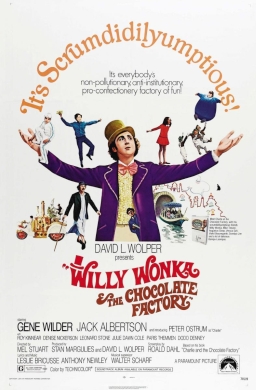
- Image by natala007 via Flickr
People have been up in arms since the iPhone came out that it doesn’t allow multi-tasking. In fact, I was one of those people with arms outstretched. I couldn’t understand why any company as visionary as Apple would want to limit their devices to only doing one thing at a time. At any given moment, I have at least 20 programs running and another 20 tabs open in Chrome. This is the way that I work. It is how I communicate with other easily and how I push the flow of data along. Now though, I am beginning to question whether or not this multi-tasking mania is really good for my creative prospects.
I think I get why Apple has resisted multi-tasking so much on their devices. They wanted each one to provide an experience for their users that was unlike anything else they have seen. They wanted to make sure that each app downloaded would feel as though it were made just for them, and not as some distraction for other distractions from real work. As I have gotten used to working on the iPad, I have realized just how powerful it is that I don’t have twitter up while I am writing. I realize just how intriguing answering an e-mail becomes when I’m not distracted by downloads or multiple tabs that keep on redirecting my attention.
On the desktop, I set up tasks in separate programs. I start one and then jump to another while that one loads. I sometimes forget about the first one until I am closing out of things a few hours later. On the iPad, I don’t feel that rush. Everything is fast and the apps don’t work together at all. Ordinarily, I would be frustrated, but at the moment, I like the fact that I am drawing a vector illustration in one app, taking a screenshot, rotating it a second app, then sending it to my blog with a third. Each task becomes sacred. It becomes more time with the process of making something great. On a desktop, it is all done for you. You don’t feel as though you have accomplished something.
And, I want to accomplish something. I want to take my time editing and producing and completely forget that there are other tasks that need to be done. For the moment, there is just one. I will follow it to its logical conclusion and then move on to the next.
It lets my mind be something it doesn’t ussually get the chance to be: organized.
It is like the one time that I cleaned my room for real.
I don’t think that I am alone in complaining about having to clean up my room. Also don’t think I am alone in doing a half-hearted job most of the time because I knew that it was going to get messy again quite soon. I am also willing to wager that I am not alone in having spent one full afternoon really cleaning my room so that I was proud of the result.
I set up action figures in fight scenes on the bookshelves. I put each of my baseball cards into their protective sleeves. I made my bed with special folds at the top that were far to intricate to be accidental. I sorted my books by genre and put the series books into their correct order.
In short, I cleaned that room like it was my job. And, I enjoyed it. I took time with those action figures to make sure that the scenes were believable. I found out new statistics about my favorite ball players. I thought about how many times I had slept in that bed while I folded the top sheet underneath the blanket. And I made mental notes of when I should read those same books again. Each event had its place and I wasn’t worried about getting all of it done because I knew that I would eventually create the finished product.
I feel like that is the power of not multi-tasking. That is the power of quiet.
While I need the noise sometimes to do a lot of things quickly, I know that I will never enjoy them as much as if I only were doing one task at a time. So, the iPad may get multi-tasking this fall, but I can tell you that I will never use it to create noise. I will never enable it just so I can devalue each step in the creative process. I will only use it to know more about the one task I am concentrating on right now. On this device, I will set up workflows only to create better work, never more output.
Because for me, output and work are two totally different things. The latter I love because it gives me more purpose. The former I despise because it gives me generic accomplishments and false understanding.
Related articles by Zemanta
- AT&T iPhone Exclusive Extended To 2011 Because Of iPad (VZ, AAPL, T) (businessinsider.com)
- iPad Developer Makes Thousands Because Apple Didn’t Include An Alarm Clock App (AAPL, GOOG) (businessinsider.com)
- Did AT&T provide cheap iPad data rates to keep iPhone exclusivity? (tuaw.com)
- Make Your iPad Into A Netbook – Argh Stop It! (inquisitr.com)

![Reblog this post [with Zemanta]](https://i0.wp.com/img.zemanta.com/reblog_e.png?w=1225)

















